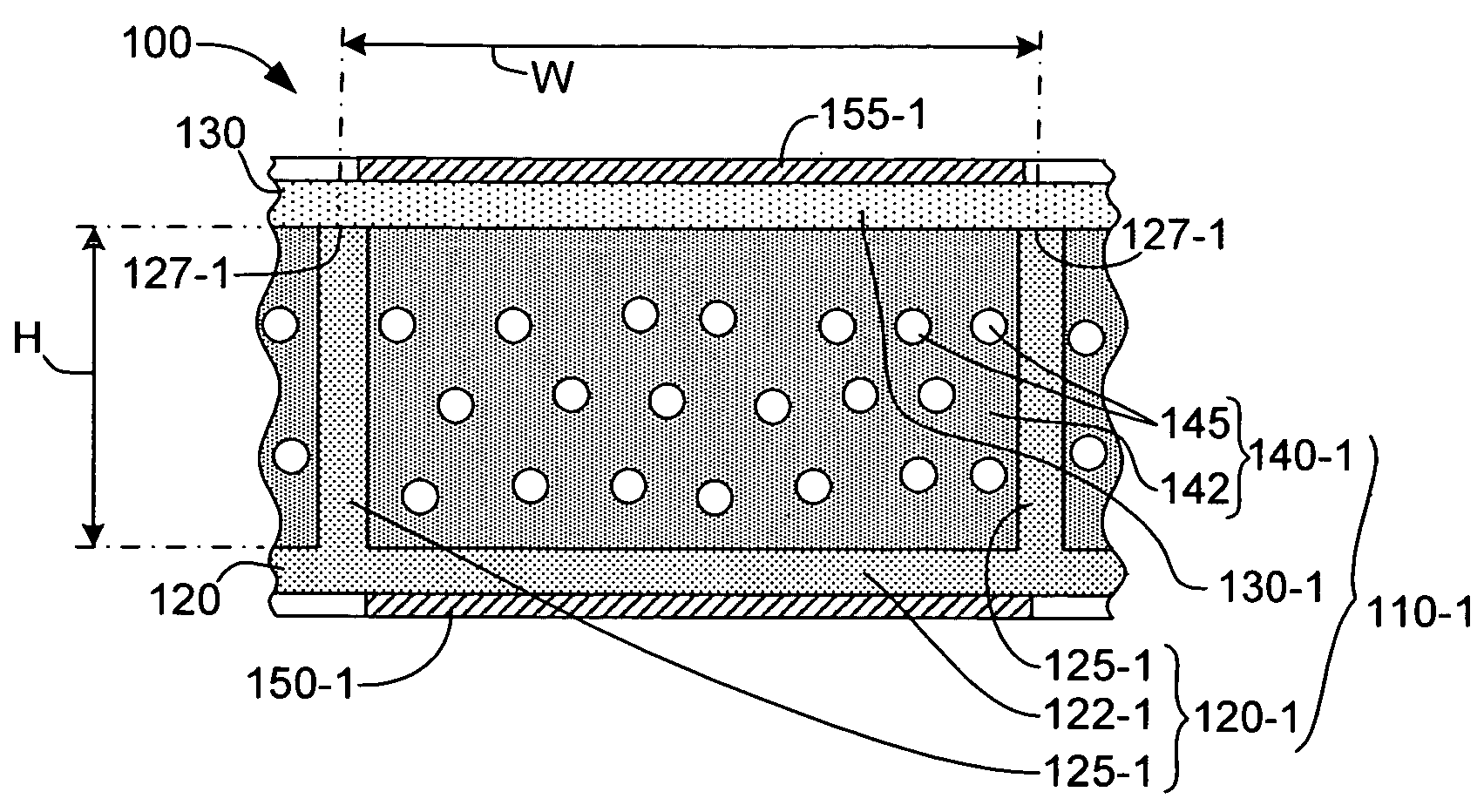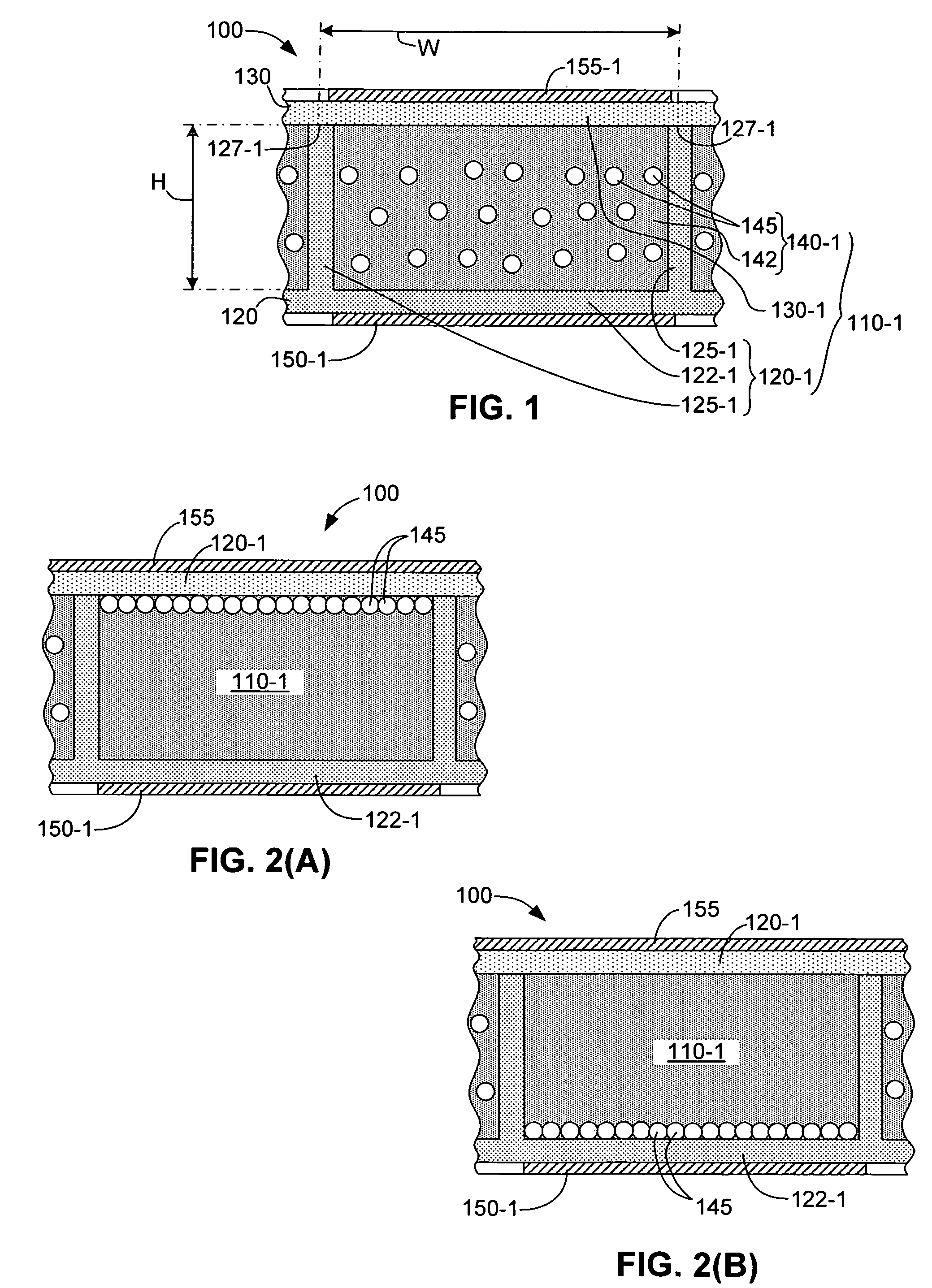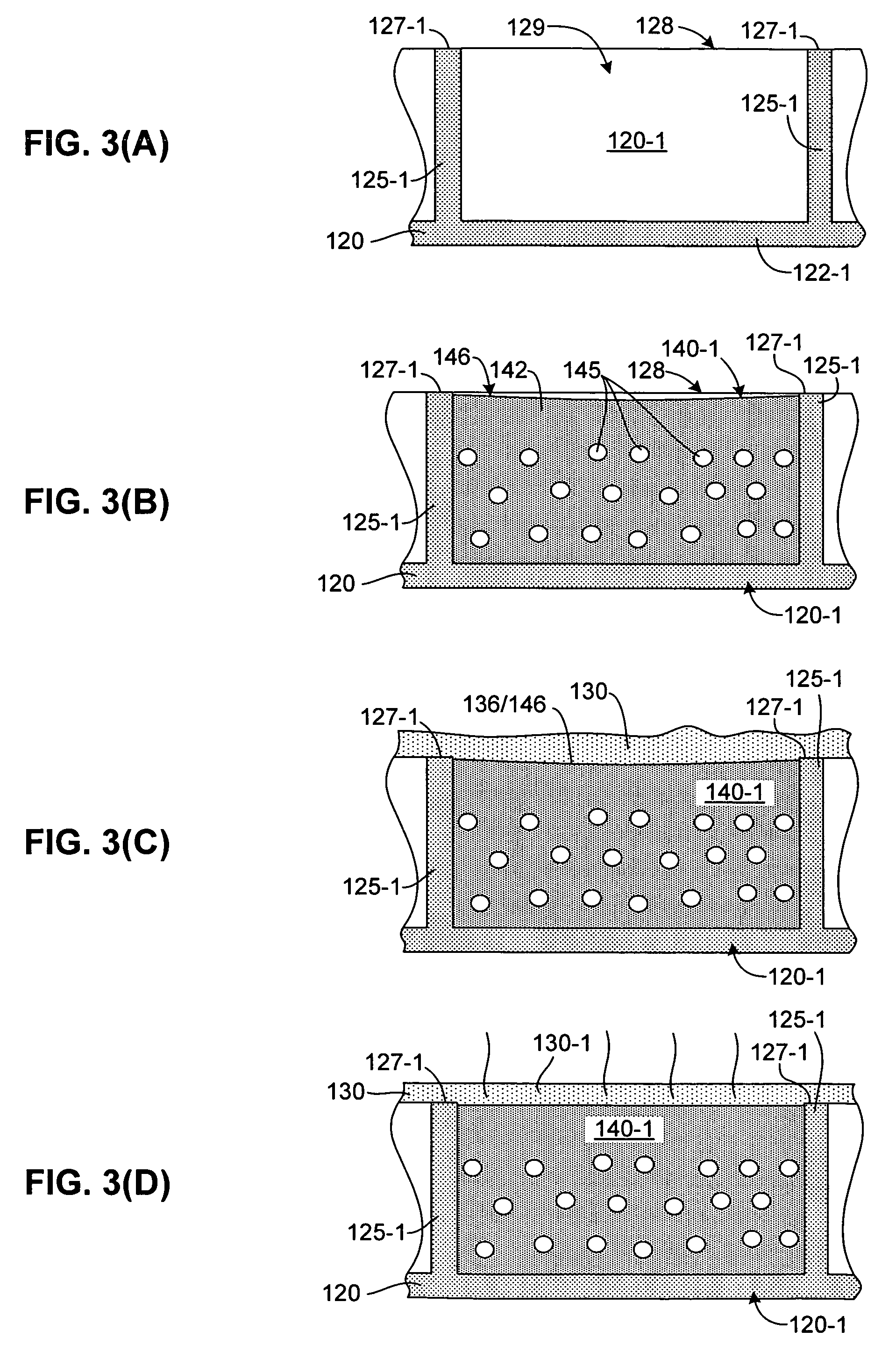Flexible electrophoretic-type display
a display device and electrophoretic technology, applied in the field of non-missive display devices, can solve the problems of destroying the written image, particle concentration gradients, conventional methods that require the use of relatively costly or hazardous ink types, such as fluorocarbon or solvent-based inks, and achieve the effect of reliable production of high-quality particle-based display devices
- Summary
- Abstract
- Description
- Claims
- Application Information
AI Technical Summary
Benefits of technology
Problems solved by technology
Method used
Image
Examples
Embodiment Construction
[0023]Unless defined otherwise in this specification, all technical terms are used herein according to their conventional definitions as they are commonly used and understood by those of ordinary skill in the art. The term “microwell” refers to cup-like structures formed in a substantially uniform layer of material by photolithographic patterning, molding, microembossing or other manufacturing process. Each microwell thus includes a lower wall (which may be formed by a substrate on which the microwell material is deposited) and one or more peripheral side walls (e.g., a single circular wall, or three or more contiguous substantially straight walls) that extend upward from the bottom wall and surround a predefined lower wall area, with upper edges of the peripheral side walls defining an open end of the microwell. The term “microcell”-refers to an image unit formed by a sealed microwell (i.e., a microwell including an amount of electrophoretic or other ink and having a sealing membra...
PUM
| Property | Measurement | Unit |
|---|---|---|
| surface energy | aaaaa | aaaaa |
| height | aaaaa | aaaaa |
| width | aaaaa | aaaaa |
Abstract
Description
Claims
Application Information
 Login to View More
Login to View More - R&D
- Intellectual Property
- Life Sciences
- Materials
- Tech Scout
- Unparalleled Data Quality
- Higher Quality Content
- 60% Fewer Hallucinations
Browse by: Latest US Patents, China's latest patents, Technical Efficacy Thesaurus, Application Domain, Technology Topic, Popular Technical Reports.
© 2025 PatSnap. All rights reserved.Legal|Privacy policy|Modern Slavery Act Transparency Statement|Sitemap|About US| Contact US: help@patsnap.com



